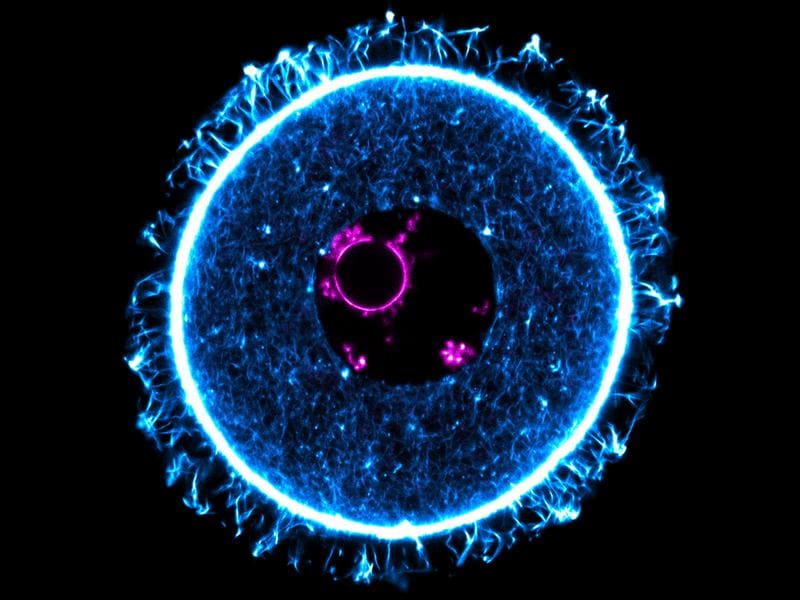Protein controls pause state of egg cells
Researchers at the Universities of Konstanz and G├Čttingen have discovered a protein that controls the long-term pause in egg cell maturation in vertebrates. The study, published in Nature Communications, sheds light on how the protein 4E-T interrupts egg maturation over years, which is crucial for reproduction.
The maturation of egg cells begins in the female embryo, pauses shortly after birth and does not continue until puberty. During this break, there is little transcription in fully grown, immature eggs, the process by which genes are transcribed into messenger RNAs that serve as a template for proteins. Instead, egg cells store a supply of messenger RNAs, whose translation into proteins is suppressed during the break. How this suppression works over years has been unclear until now.

The researchers identified the protein 4E-T as a key factor. Experiments with egg cells from frogs and mice showed that the removal of 4E-T cancels the maturation pause by upregulating the translation of messenger RNAs into proteins. Among these proteins are important regulators that initiate the next steps in egg cell maturation. Mass spectrometry confirmed that 4E-T interacts with the RNA-binding protein PATL2, which is specifically found in oocytes. This interaction forms the core of a network that blocks the translation of messenger RNAs.
The results also have medical relevance, as mutations in the 4E T gene are associated with premature ovarian failure and fertility disorders in humans. The study provides new insights into the molecular mechanisms of egg cell maturation and could help to better understand such disorders.
Original Paper:
Editor: X-Press Journalistenb├╝ro GbR
Gender Notice. The personal designations used in this text always refer equally to female, male and diverse persons. Double/triple naming and gendered designations are used for better readability. ected.




